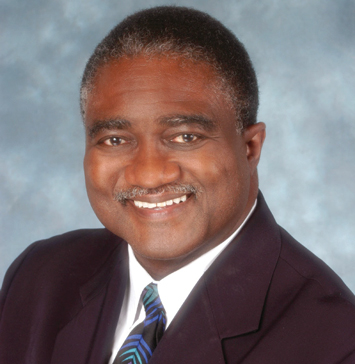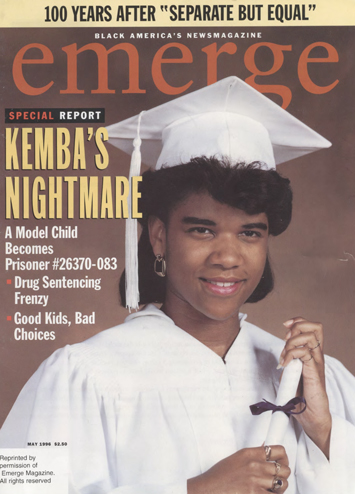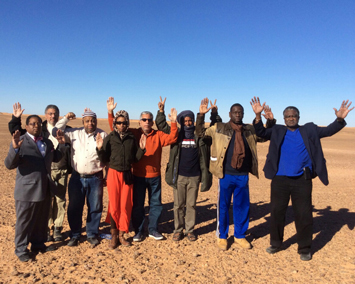A voice for Black America passes
By Richard B. Muhammad - Editor | Last updated: Aug 23, 2016 - 11:00:14 AMWhat's your opinion on this article?

George E. Curry
|
I had known Mr. Curry, as I usually called him, for some years. I took a trip with him to Algeria and Western Sahara in North Africa in December 2014. We were part of a delegation that came to visit what has been called “Africa’s last colony” in a trip organized by the Institute of the Black World 21st Century.
Along with legendary journalist Linn Washington from Philadelphia, Mr. Curry and I stayed with a family in the Tindouf refugee camp in Algeria. It was an enjoyable and enlightening trip and Mr. Curry was funny with his Alabama accent, serious as we discussed issues of self-determination for the Saharawi people and connections with Black America and compassionate when we learned the woman who hosted us, who was already a widow, had lost her father. The three Black men who stayed in her home offered her a token of thanks with some money that would help ease her burden.
As was widely reported George E. Curry departed this life Aug. 20 and was 69-years-old. He made an incredible impact on the Black Press through weekly columns and as the leader and editor of Black-owned publications.
There is a difference between Black-owned versus Black-oriented outlets owned by Whites. Mr. Curry knew that and was outspoken about it. He was also clear about calling out Black newspapers that were lackluster or lacking in a commitment to speak the truth, produce a quality product, and stand strong on behalf of Black people.

|
He was clear: Black newspapers need to stand up for Black people regardless of what White advertisers, Whites in power or what politicians thought. He hated the idea that the Black Press would be relegated to second class status and accept it. When some national research reports came out that were relevant to Blacks, it was not unheard of for Mr. Curry, as editor of the NNPA Newswire, which served 200 Black-owned publications, to say “keep the report unless you give me an advance copy.” He wanted to make sure Black papers would run the news at the same time as their White counterparts.
He had an incredible grasp of Black history and elements of the history, whether it was Supreme Court decisions or the record of political leaders and presidential administrations. He would offer that information in his columns, appearances on radio and television and speeches. His columns were often printed in The Final Call newspaper.
He clearly understood that he was a Black man first and a journalist or whatever else second. That knowledge, however, did not make him a “yes man” for Black leadership and politicians. He called things as he saw things whether the person he was looking at was Black or White.
“This is a tragic loss to the movement because George Curry was a journalist who paid special attention to civil rights because he lived it and loved it,” Dr. Bernard Lafayette, a confidant of Dr. Martin Luther King, Jr., and chairman of the Southern Christian Leadership Conference, in a statement from the SCLC communications director.
He was a childhood friend, confidant and ally in civil rights of Dr. Charles Steele, SCLC president. “They grew up together in Tuscaloosa, Ala. where Curry bloomed as a civil rights and sports writer as Steele grew into a politician and civil rights leader,” observed the Trice Edney Newswire in a report about his passing.
Starting at Sport Illustrated, then the St. Louis Post Dispatch, and Chicago Tribune, his work as editor of Emerge Magazine and NNPA Newswire editor made his career.
He was part of organizing for the 1995 Million Man March when naysayers said it would never happen. He covered national and international events, including important global conferences and the presidential campaigns and work of civil rights leader Jesse Jackson. He was a regular contributor to Rev. Al Sharpton’s national radio show, “Keepin’ It Real.”

Black Press delegation in Algeria in December 2014 in Hands Up Don’t Shoot pose that followed killing of Mike Brown in Ferguson, Mo. Far left is Final Call editor Richard B. Muhammad and at far right is journalism giant George E. Curry.
|
He had left the NNPA Newswire and was engaged in internet publishing and an e-newsletter, Emerge News Online, while raising money to resurrect Emerge magazine fully as a digital publication.
He served as editor-in-chief of the NNPA News Service from 2001 until 2007, returned to lead the news service for a second time on April 2, 2012.
During his work for the NNPA Newswire, Mr. Curry heard oral arguments in major Supreme Court cases dealing with affirmative action, traveled to Doha, Qatar, to report on the Iraq War and global AIDS confabs. He also traveled to Egypt, England, France, Italy, China, Germany, Malaysia, Thailand, Cuba, Brazil, Ghana, Senegal, Nigeria, the Ivory Coast, Mexico, Canada, and Austria.
Emerge magazine won 40 national journalism awards with Mr. Emerge at its helm. It was a place for serious Black journalism. The most impactful was his four-year campaign to win the release of Kemba Smith. This 22-year-old woman was given a mandatory sentence of 24 1/2 years in prison for her minor role in a drug ring. In May 1996, Emerge published a cover story titled “Kemba’s Nightmare.” President Clinton pardoned Smith in December 2000, marking the end of her nightmare.
Her story shined an intense light on the unfairness of mandatory minimums and a sign of the increased incarceration of Black women.
He was the author of “Jake Gaither: America’s Most Famous Black Coach” and editor of “The Affirmative Action Debate” and “The Best of Emerge Magazine.”
A member of the National Speakers Association and the International Federation for Professional Speakers, his speeches have been televised on C-SPAN and reprinted in Vital Speeches of the Day magazine.
He was born in Tuscaloosa, Alabama, graduated from Druid High School and attended Knoxville College in Tennessee. He was editor of the college paper, quarterback and co-captain of the football team, a student member of the school’s board of trustees, and attended Harvard and Yale on summer history scholarships.
His work was also featured as part of the PBS’ Frontline series and he was part of a weeklong Nightline special, “America in Black and White.” He appeared on CBS Evening News, ABC’s World News Tonight, The Today Show, 20/20, Good Morning America, CNN, C-SPAN, BET, Fox Network News, MSNBC, and ESPN.
He was given honorary doctorate degrees from Kentucky State University, Lane College in Jackson, Tennessee, and earned the University of Missouri Honor Medal for Distinguished Service in Journalism—and honor accorded Joseph Pulitzer, Walter Cronkite and Black publisher John H. Johnson. In 2003, the National Association of Black Journalists named George Curry its Journalist of the Year. A special place in his heart and work was founding journalism workshops and efforts to bring young people into the field.
We are grateful for the contribution that this brother made in the search for truth and spreading good information. May we build on his legacy in our pursuit of truth, journalistic excellence and Black progress.
—Richard B. Muhammad, editor, The Final Call Newspaper
INSIDE STORIES AND REVIEWS
-
-
About Harriett ... and the Negro Hollywood Road Show
By Rabiah Muhammad, Guest Columnist » Full Story -
Skepticism greets Jay-Z, NFL talk of inspiring change
By Bryan 18X Crawford and Richard B. Muhammad The Final Call Newspaper @TheFinalCall » Full Story -
The painful problem of Black girls and suicide
By Charlene Muhammad -National Correspondent- » Full Story -
Exploitation of Innocence - Report: Perceptions, policies hurting Black girls
By Charlene Muhammad -National Correspondent- » Full Story -
Big Ballin: Big ideas fuel a father’s Big Baller Brand and brash business sense
By Bryan Crawford -Contributing Writer- » Full Story






 Click Here Stay Connected!
Click Here Stay Connected!








